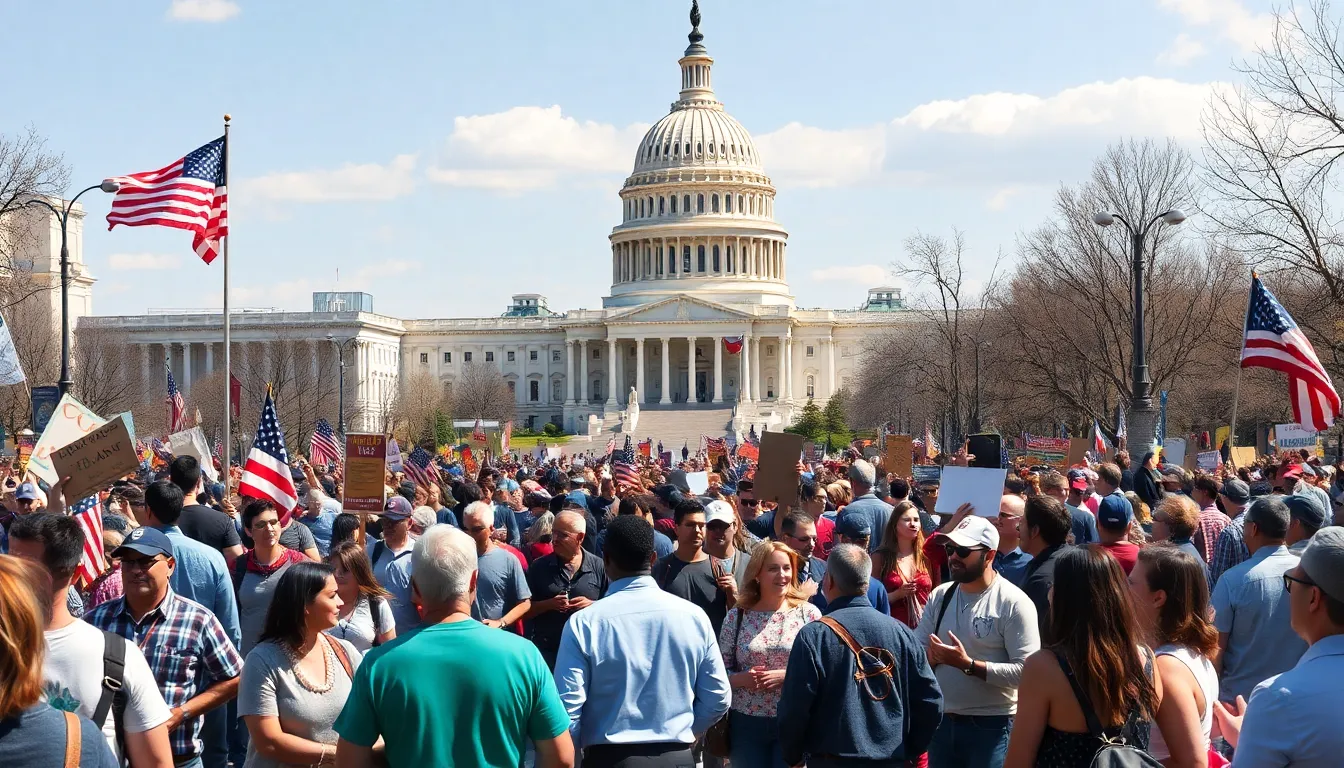January 6th holds significance for many people around the world. It marks the end of the Christmas season in various cultures and is celebrated as Epiphany in Christian traditions. This day often features festive gatherings and special customs, making it a time of joy and reflection.
In 2021, January 6th gained additional prominence in the United States due to the events that unfolded at the Capitol. This date now serves as a reminder of political tensions and the importance of democracy. Understanding the multifaceted nature of January 6th allows for a deeper appreciation of its historical and cultural relevance. Whether it’s a day of celebration or contemplation, January 6th is more than just another date on the calendar.
Table of Contents
ToggleUnderstanding January 6th
January 6th holds historical and cultural significance across various traditions. This date represents not only a festive occasion but also a complex intersection of celebration and remembrance.
Significance of January 6th
January 6th marks the conclusion of the Christmas season, symbolizing the arrival of the Magi or Wise Men in Christian tradition. Many cultures recognize this event as Epiphany, commemorating the revelation of Christ to the Gentiles. In addition to its religious implications, January 6th carries political weight in the United States. The events at the Capitol in 2021 transformed this date into a poignant reminder of democratic values and ongoing political discourse.
Cultural Celebrations on January 6th
Cultural practices on January 6th vary by region.
- Latin America: Many Latin American countries celebrate “Día de Reyes,” featuring parades and the sharing of Rosca de Reyes, a traditional cake symbolizing the Three Kings.
- Eastern Orthodoxy: Eastern Orthodox Christians often celebrate this day with the Feast of Theophany, highlighting Christ’s baptism, including rituals like the blessing of water.
- Italy: La Befana, an old woman delivering gifts, adds to the festivities, showcasing a fusion of folklore with religious customs.
Each of these celebrations reflects the rich diversity and interconnectedness of traditions observed on this notable day.
Historical Context

January 6th carries significant historical weight, marked by various important events and notable birthdays throughout history. Its cultural and political importance continues to evolve.
Events on January 6th Throughout History
- Epiphany Celebration: January 6th, observed as Epiphany, commemorates the revelation of Christ to the Gentiles, celebrated through varied traditions across cultures.
- New World Recognition: In 1493, Christopher Columbus noted the island of Dominica on January 6th during his voyages, marking an important moment in the Age of Exploration.
- The Boston Tea Party: On January 6, 1774, American colonists began organizing against British taxation, laying the groundwork for future revolts.
- Capitol Riot: The events of January 6, 2021, in Washington, D.C., underscored contemporary political tensions, marking a significant moment in U.S. history and raising questions about democracy.
Notable Birthdays and Anniversaries
- King C. Gillette (1855): The founder of the Gillette razor company, he revolutionized shaving with his invention of disposable razor blades.
- Richard Nixon (1913): The 37th President of the United States, who played significant roles in domestic and foreign policy during his administration.
- John Siegenthaler (1927): An influential American journalist known for his work in civil rights and significant contributions to national journalism.
- Diane Keaton (1946): Acclaimed American actress and director known for her diverse roles in film and theater, including her collaboration with Woody Allen.
Observances and Holidays
January 6th features a variety of observances and holidays, drawing attention to its cultural and religious significance across different communities.
Religious Observances
Epiphany is a central religious observance on January 6th, especially within Christian traditions. This day commemorates the revelation of Christ to the Gentiles through the visit of the Magi. Various denominations celebrate with distinct rituals; for example, Catholic churches often involve special masses and processions. Eastern Orthodox Christians recognize the Feast of Theophany, emphasizing Christ’s baptism with water blessing ceremonies. In many cultures, these religious rites serve as moments of reflection and joy, solidifying community bonds and spiritual connections.
National and International Days
January 6th also hosts several national and international days. In many Latin American countries, this date celebrates “Día de Reyes,” marked by parades and a traditional cake known as Rosca de Reyes. The day often involves families gathering to share the cake, fostering unity and joy among community members. In addition, January 6th marks Civil Rights Day in some states in the U.S., honoring the advancements in civil rights and encouraging ongoing advocacy for equality. These observances showcase the day’s rich tapestry of cultural significance, encapsulating both festive and reflective traditions.
January 6th serves as a multifaceted day rich in cultural and historical significance. From the joyous celebrations of Epiphany to the reflective observances of Civil Rights Day, this date encapsulates a blend of tradition and contemporary issues.
As communities come together to honor their unique customs, January 6th also stands as a poignant reminder of the ongoing dialogue surrounding democracy and civil rights. The diverse ways in which this day is celebrated highlight the interconnectedness of various traditions and the importance of understanding these practices in today’s world.









